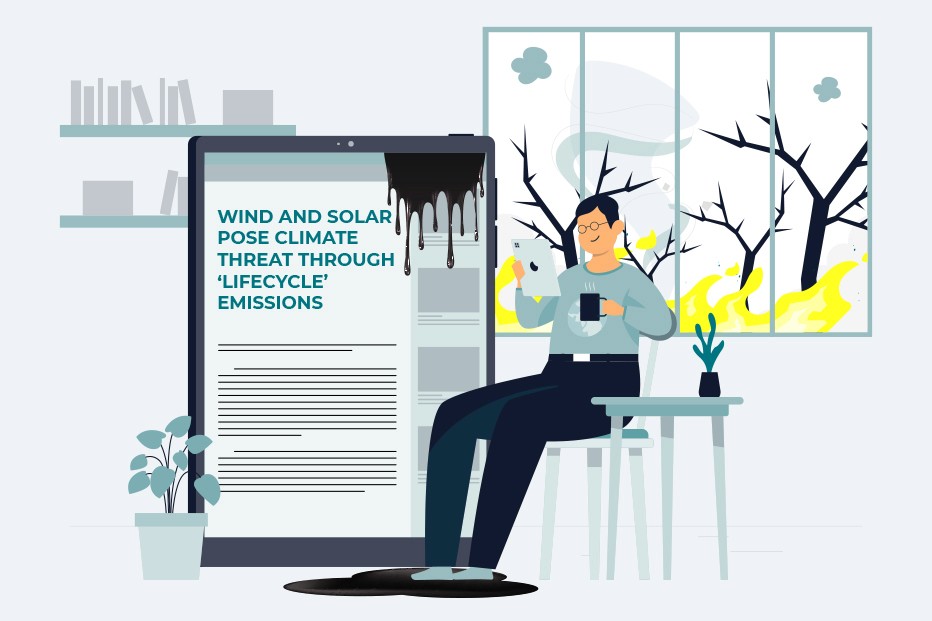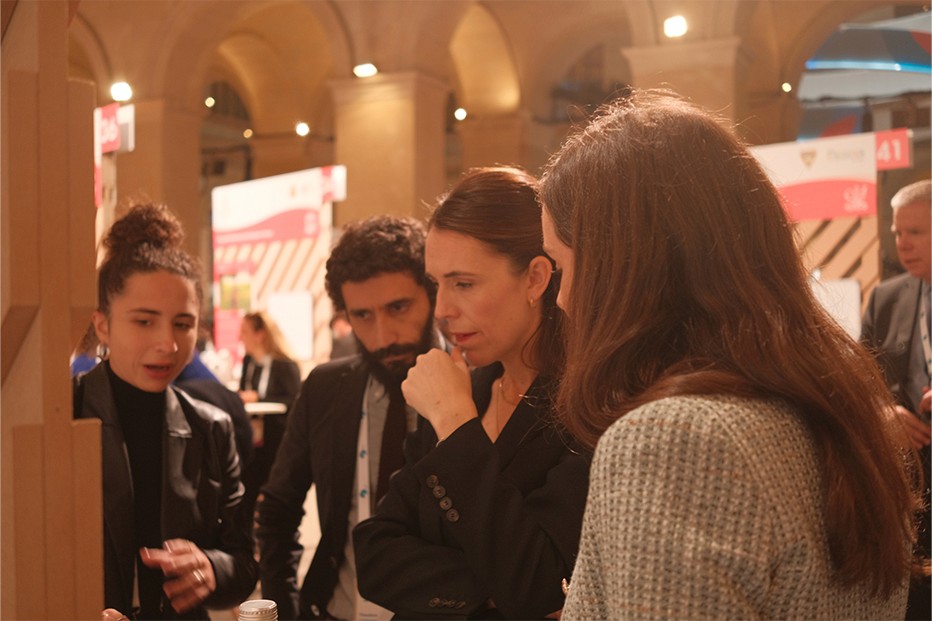Fact-checking
Articles
MENA action on climate disinformation required for just transition
Rachel Bessette
Dec 11, 2023
As the curtain closes on COP28, the Middle East finds itself on the frontlines of a climate crisis that risks being inflamed by disinformation. A just transition requires the region’s residents to be equipped to detect and debunk denialism and falsehoods about the world’s changing weather.
As the curtain closes on COP28, the Middle East finds itself on the frontlines of a climate crisis that risks being inflamed by disinformation. While observers have closely monitored world leaders’ climate positions at COP over the past two weeks, a just transition and phase-out of fossil fuels requires the region’s residents to be equipped to detect and debunk denialism and falsehoods about the world’s changing weather. Decisive action must be taken now to make that a reality.
The climate crisis in MENA
The MENA region has already experienced severe impacts of climate change. It is warming 20% faster than the global average and is the most water-scarce region in the world. Extreme heat, drought, floods, sea level rise, pollution and intense water scarcity are already dramatically impacting the region. An estimated 60 percent of the region has little to no access to potable water and the 70 percent of regional agriculture that is rain-fed is facing major threats. Drought, desertification, and extreme weather events stand to only exacerbate already severe inequalities and drive renewed outbreaks of conflict and disease.
Iraq, for example, is expected to be one of the five countries hardest hit by climate change. Already we are seeing record temperatures and rapid loss of arable land, estimated at as much as 60,000 acres per year. Severe drought in Iraq’s southern marshlands is driving internal displacement while heavy upstream use of waters from the Tigris and Euphrates has dramatically reduced water flow into Iraq and is a significant cause of dispute between the three countries. Desertification due to drought, meanwhile, is driving an uptick in severe dust storms that are impacting Iraq as well as neighboring Saudi Arabia and Syria.
Other regional countries, such as those on the Mediterranean, are also flagged as climate change hotspots. Driven by rising sea surface temperatures and anthropogenic greenhouse gas emissions, the agricultural region is already experiencing increased drought frequency. Meanwhile, extreme heat in Gulf countries poses a major health risk that disproportionately affects migrant workers in the construction and agricultural sectors. Meanwhile in North Africa, coastal cities are threatened by sea level rise and several countries are already home to swelling populations of migrants fleeing food insecurity and conflict in the Sahel and sub-Saharan Africa. As evidenced by recent incidents of violence and hate speech in Tunisia, migrants face a less than hospitable welcome.
Fertile ground for climate disinformation
Yet, in spite of all this, climate change is still not a very ‘hot’ topic in the Middle East. The region is the smallest recipient of climate change finance worldwide and most lower income MENA countries that ratified the 2016 Paris Agreement are struggling to meet their Nationally Determined Contributions. At same time, climate change education in the region also falls woefully short.
Put together, mounting and severe impacts from climate change, insufficient governmental action, and a relative absence of public education create an environment ripe for climate mis/disinformation in the MENA region.
On a global level, the risk and impact of mis/disinformation has already been highlighted by the UN Intergovernmental Panel on Climate Change (IPCC), which cites “rampant” and coordinated efforts to undermine climate change action by attacking activists, using bots to generate and amplify false information, and conducting false campaigns to undermine climate science. However, most research on climate dis/misinformation to date largely focuses on English language media with little evidence of similar research at scale in the MENA region.1
As Dalil has observed previously, mis/disinformation in the MENA region is already more likely to go undetected due to ill-fitting and poorly trained algorithms. There is likewise a strong trend in over-policing of Arabic-language content online by social media companies from a counter-terrorism lens. With so many already limited resources going to detecting ‘hostile’ content, it is unlikely that much attention is paid to climate disinformation by content regulators.
Meanwhile, we are already seeing instances of climate disinformation cropping up across the region. Take recent devastating flooding in Libya, for example. After floodwaters broke through aging dams and wiped out nearly an entire city, a member of the Libyan parliament sought to deflect accusations of government failure, instead blaming climate change for the catastrophic floods. Meanwhile, climate change deniers also spread a video of not uncommon snow in the Saudi Arabian desert as evidence that global warming is a “hoax”. Disinformation has also been repeatedly cited surrounding extreme weather events, such as fake news about melting cars in Kuwait during a heat wave, and false reports of dust storms hitting Iraq. Other instances have been significantly more dire, such as reports of ISIS using misinformation about droughts in southern Iraq as a tool for recruitment.
The shape of climate disinformation to come
With the relative absence of research on climate disinformation in the region, the instances cited above are likely only a small subset of a broader phenomenon. Likewise, as the effects of climate change in the region increase in both their frequency and severity, climate related dis/misinformation is likely to also rise.
Drawing on current and prior examples, this means that we will see dis/misinformation about the effects of climate change increasingly used by politicians to avoid responsibility, and by political and armed groups to rally support and discredit rivals. There will likely also be an uptick in social media users and bots spreading false information on extreme weather events in the region as either a form of alarmism or climate change denial.
The entry of disinformation into the climate change lexicon at and around COP28 presents an important opportunity to take history as a lesson. If dis/misinformation in the Arabic language is poorly detected and controlled by social media companies, then climate disinformation is likely not an exception.
There is therefore a clear and pressing need for a more accurate understanding of the scale and severity of climate dis/misinformation in the region. This must be paired with efforts to improve education regionally on climate change. Fact checkers that better understand the facts of climate change and their relevance to the region will be better able to detect related mis/disinformation online. Meanwhile more educated media consumers will be less vulnerable to falling victim to false or misleading information. In these efforts, AI tools such as DALIL, the first AI-enabled Arabic language platform for fact-checking, can play a crucial role in flagging potential climate dis/misinformation to fact-checkers and social media users.
With many of the dire consequences of climate change becoming all but unavoidable in the MENA region, it is crucial that we are well prepared to fight the surges of dis/misinformation that will come. As we already know, climate change exacerbates existing inequalities. When this is paired with online dis/mis-information, the consequences can be dire - manifesting in hate speech, violence and deepening societal divides. As a region it is well past time for us to take decisive action to protect and prepare for the future.










